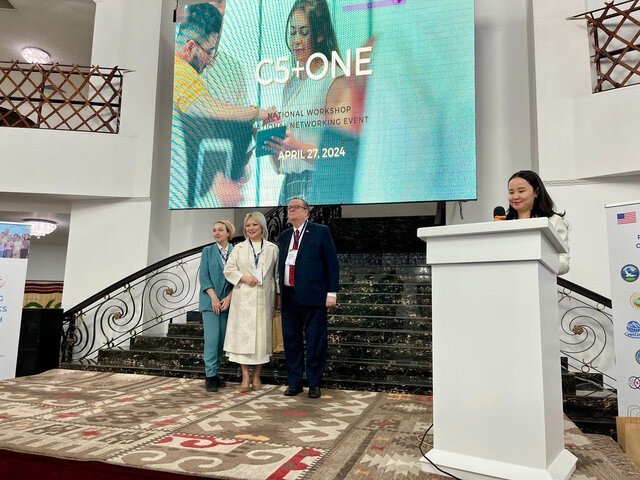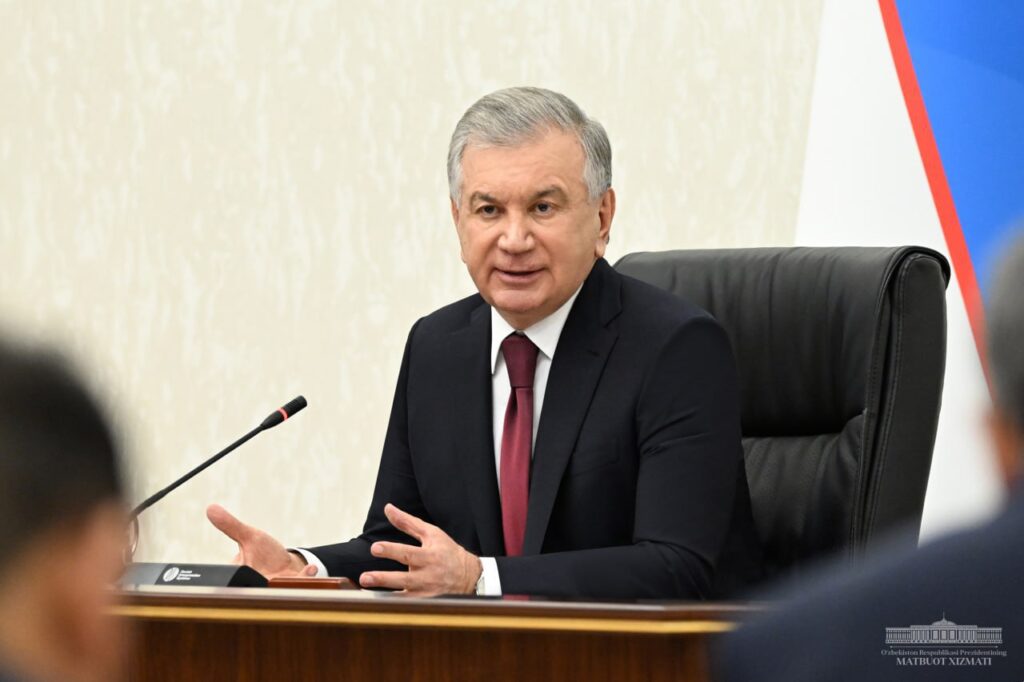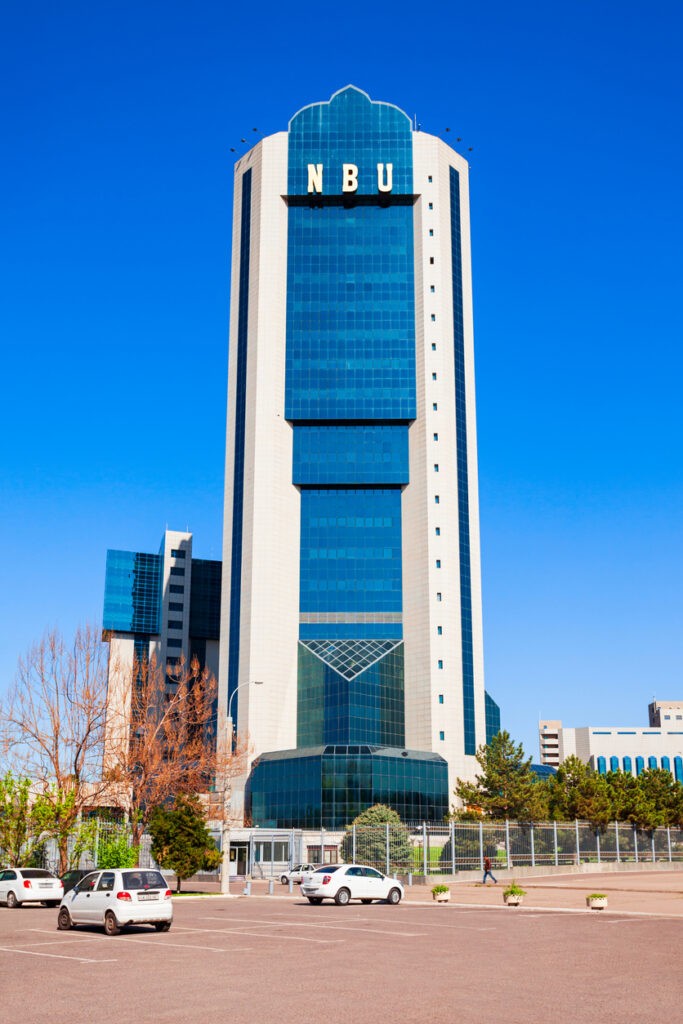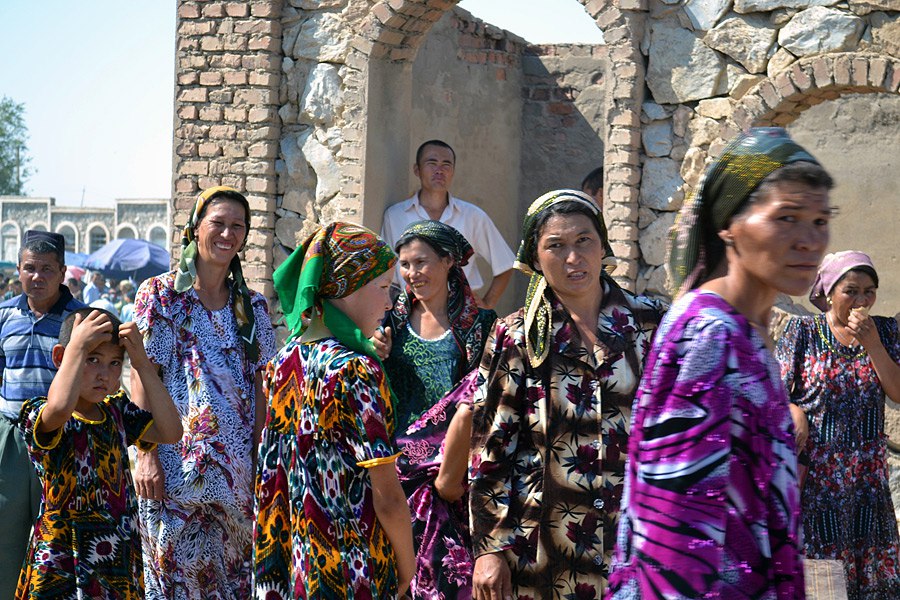Viewing results 1 - 6 of 1336
Last weekend, young and mid-career professionals in the energy and environment sectors, celebrated their completion of the U.S.-funded regional C5 + Opening Networks through English (C5 + O.N.E.) program. Spread throughout Kazakhstan, Kyrgyzstan, Tajikistan, Turkmenistan, and Uzbekistan, they were the first graduates of a nine-month intensive course in English and professional development implemented by the American Council for International Education with support from U.S. embassies. A total of around 1,100 participants in three cohorts are currently enrolled in the program which operates throughout Central Asia. The US Embassy in Kyrgyzstan reports that 189 professionals throughout the country are currently enhancing their English and professional skills through three weekly classes, supplemental field trips and online seminars. Some participants from Kyrgyzstan’s Cohort One are due to present their advanced, final projects at a regional C5 + O.N.E. conference this September in Tashkent. Cohort Two students will graduate in August 2024, and Cohort Three, will complete their studies later in November. Outlining the objectives of the U.S. government’s unique regional project, U.S. Ambassador to the Kyrgyz Republic, Lesslie Viguerie stated: “C5 + O.N.E. is a testament to the U.S. commitment under the C5 + 1 diplomatic platform to advance shared goals among Central Asian nations. This program builds networks that are essential in today’s globalized world.”
The Office of the U.S. Trade Representative (USTR) has published its Special 301 Report for 2024 on the protection and enforcement of intellectual property. This annual report details the USTR’s review of more than 100 trading partners after significant research and extensive engagement with stakeholders, and the latest iteration holds very positive news for Uzbekistan. According to the report, the USTR removed Uzbekistan from its Watch List this year because of sustained progress on long-standing issues pertaining to intellectual property (IP) protection and enforcement. For example, Uzbekistan enacted new Customs Code amendments that introduce ex officio authority to suspend and seize counterfeit imports and exports. Uzbekistan also continues to give high-level political attention to IP - including support for and participation in the Intellectual Property Working Group under the U.S.-Central Asia Trade and Investment Framework Agreement. It was reported that the removal of Ukraine from the watch list was delayed due to the ongoing Russian-Ukrainian war. The USTR continues to engage trading partners to address IP protection and enforcement concerns, including through bilateral cooperation through Trade and Investment Frameworks (TIFAs) and other mechanisms. Examples of cooperation include deals with Armenia, India, Kazakhstan, Kyrgyzstan, Paraguay, Peru, Tajikistan, Thailand, Turkmenistan, Ukraine, Uzbekistan, and Vietnam.
Uzbekistan's president Shavkat Mirziyoyev has signed a decree that will put up for auction shares in 247 state enterprises and 1,028 units of real estate. Initial public offerings (IPOs) and secondary public offering (SPOs) of 12 large enterprises are also to be held on the domestic stock market. The Uzbek government is planning various incentives to speed up the sales. For example, if an asset is not sold within three months of the auction opening, its value will be phased down to 10% of the starting bid price. Lessees of state property will be able to buy the assets under contract directly at the appraised value, and those who purchase privatized state assets in installments will be able to pay just 15% of the purchase price in the first three months, and the rest only within the next 10 years. Additionally, the privatization program provides for simplified sale of land plots located along international highways, as well as the sale and registration of land assets for the construction of commercial and service facilities along those roads. Earlier this year Mirziyoyev criticized the slow pace of property privatization in the country and noted that it could bring 20 trillion sum ($1.5 billion) to the national budget. According to Mirziyoyev, many enterprises have artificially inflated their valuations to avoid transferring state assets to private ownership. The Ministry of Health (39), Uzpromstroybank (27), the Ministry of Preschool and School Education (21), the Committee on Roads (17), the Ministry of Higher Education, Science and Innovation (14), Uzbek Postal Service [Pochtasi] (14), and the Ministries of Culture and Water Management (13 each) have the most unrealized assets that should be transferred to the docket for privatization. Thanks to the incentives, significant revenues are expected from the sale of land to entrepreneurs through the auctions, which last year generated 1 trillion sum ($78 million) in windfall for the state budget. Among the most significant objects privatized in recent years were the Kokand Superphosphate Plant, in which a foreign investor invested $40 million and increased production fourfold. Furthermore, the sale of state stakes in Ipoteka Bank ($324 million) and in Coca-Cola Uzbekistan ($252 million) netted significant cash injections for the government.
Remittances to Uzbekistan from Russia have decreased by 68 % in the first quarter in 2024. Declining remittances have been observed since 2023, when Uzbeks working in Russia sent $8.58 billion home. According to experts at the World Bank, the reasons for the decline were several: a decrease in the number of migrant workers in Russia, devaluation of the ruble, and inflation keeping more of labor migrants' income in Russia to fund their basic needs. Uzbekistan became the leading nation in receiving remittances from Kazakhstan in 2023, at $588.62 million for the year. Remittances from Uzbeks living and working abroad account for 17.8% of the country's (gross domestic product) GDP. Uzbekistan continues to actively support labor migrants who wish to find employment abroad, offering them reimbursement for tickets and professional certification costs, and offering training in various professions and languages, as well as material and legal assistance. In parallel, the state is opening new markets for labor migration - among them Germany, Britain, Japan, South Korea, and Israel. Citizens of Uzbekistan with the appropriate qualifications and language skills can earn salaries abroad of $1,000-$1,500 per month.
The Asian Women's Forum will be held in Samarkand this May, where participants will discuss the situation surrounding women's rights in the countries of Central and Southeast Asia. The forum will discuss issues related to expanding women's rights, and reducing poverty in the region by involving women in entrepreneurship. Sessions will pay special attention to the role of parliaments in stimulating women's participation in business, gender-oriented budgeting, elimination of gender disparity, and eradication of all forms of violence against women and children. The participants will also focus on modern approaches and best practices in promoting the green economy, the impact of climate change on gender issues in the region -- as well as protection of women's rights and interests. Women are now a driving force in all aspects of life in Central Asia. Addressing the 78th session of the UN Commission on the Status of Women in New York, Chairwoman of the Senate of the Oliy Majlis (bicameral parliament) of Uzbekistan Tanzila Narbayeva said that "the attitude towards women has fundamentally changed in the country. Much attention is [being] paid to their education, mastering professions and foreign languages -- as well as to the development of women's entrepreneurship." To date, Uzbekistan has adopted more than 40 legal and regulatory acts to improve the status of women in society, established the National Agency for Social Protection, which, among other things, provides targeted assistance to women and works specifically on the social adaptation of women returned from conflict zones in Syria, Iraq and Afghanistan.
According to the agricultural trade publication East Fruit, Central Asians have little taste for bananas. Kazakhstan has the highest consumption rate but with an average of 4.5 kg of fresh bananas eaten per person, per year, comes nowhere near Uganda where each year, individuals enjoy a whopping 270 kg of bananas. Uzbekistan and Kyrgyzstan are fast catching up with Kazakhstan whilst in Tajikistan, the annual banana consumption per head is only 2.3 kg. In Turkmenistan, it appears that many citizens never touch the fruit. Lagging far behind its neighbours, a very modest 160 grams are consumed per head, per year; a figure which according to East Fruit analysts is even lower than that recorded for North Korea. Not surprisingly, countries with the highest banana consumption tend to be those where the fruit is grown and exported and by way of explaining the above data, Andriy Yarmak, an economist in the investment department of the Unites Nations (UN) Food and Agriculture Organization (FAO) stated, "Such a low consumption of bananas in Central Asian countries is due to the distance of the countries from the port infrastructure, which makes logistics very expensive. In addition, many countries in the region have high tariff and non-tariff barriers that prevent the import of exotic fruits into these regions. The third factor is the relatively low prices of local fruits, especially in the season of their mass production.”






